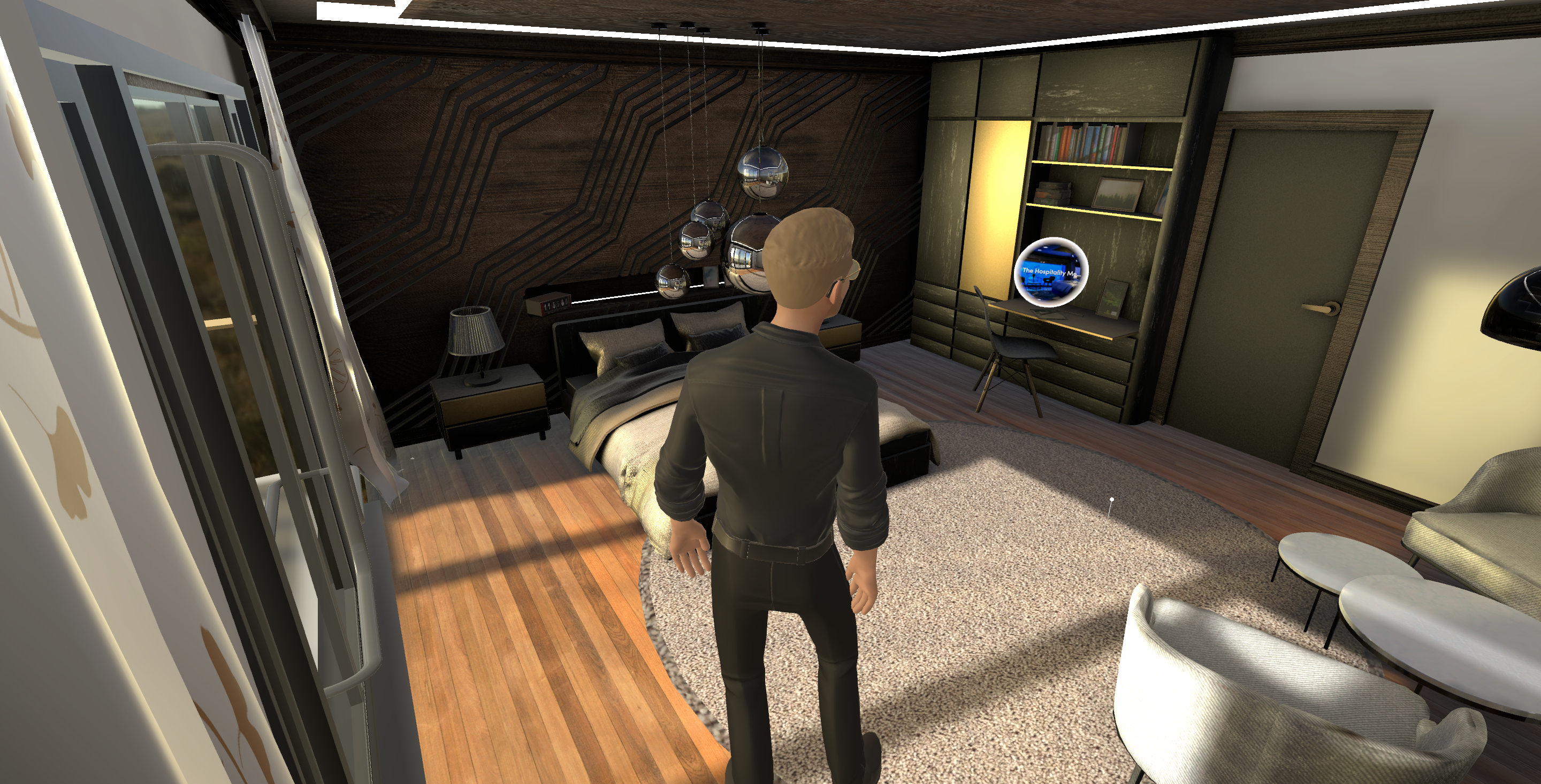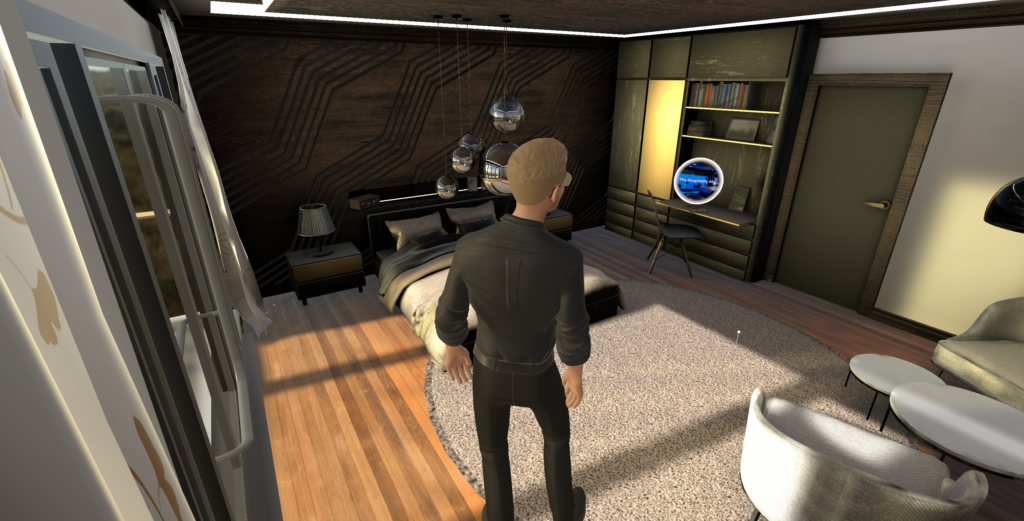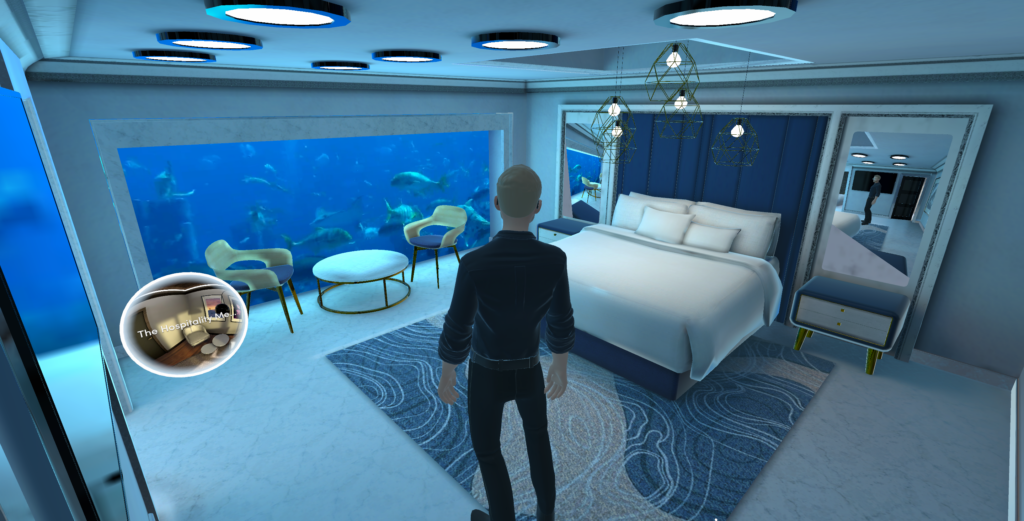Hospitality Consulting
Specialised in immersive technology

Immersive Technology
The hospitality industry is constantly evolving, with new technology and trends shaping the way people travel, stay, and experience new destinations. With the rise of virtual and augmented reality, these immersive technologies are poised to play a significant role in the future of hospitality.
3D virtual site inspection
Virtual tours are the new revolution in the hospitality industry, redefining customer interaction and service offerings. These immersive experiences provide potential clients across the globe with a tangible feel of what it’s like to be in the hotel or event venue, all without leaving their home or office. This ability to offer a pre-experience of the physical space virtually is a game-changer for hotels, enhancing customer engagement and driving more informed decision-making.
What’s even better, hotels can launch their virtual tour services without breaking the bank. With affordable and easily accessible 360° photography, they can create rich, interactive tours showcasing their spaces from every angle. But it doesn’t stop there. Imagine the flexibility of changing the furniture layout in your meeting rooms with just a few clicks. This dynamic feature allows hotels to tailor their spaces to clients’ specific needs, adding a whole new dimension to personalisation. Thus, virtual tours are not only a fantastic marketing tool, but they’re also an innovative way to optimise customer service and satisfaction in the hospitality industry.
Immersive Pre-Experience: Virtual tours offer customers a realistic, 360-degree view of the hotel or venue, allowing them to experience the space as if they were physically there.
Global Accessibility: No matter where a potential guest is located in the world, they can access and explore the venue at their convenience.
Customer Engagement: Interactive virtual tours increase customer engagement, keeping potential guests on the site for longer and increasing the likelihood of booking.
Cost-Effective Marketing: Virtual tours are a cost-effective marketing tool, with a one-time investment in 360° photography yielding long-term benefits.
Personalization: Hotels can tailor their space to meet the specific needs of each client by modifying aspects like furniture layouts, decor, and ambience in the virtual tour.
Transparency and Trust: By offering a detailed, unfiltered view of the venue, hotels can build greater transparency and trust with potential customers.
Increase in Bookings: Research shows that hotels offering virtual tours receive significantly more bookings compared to those relying on traditional photos alone.
Versatility: Virtual tours can be used across multiple digital platforms, from the hotel’s website to social media channels, boosting visibility and reach.
Competitive Edge: Offering virtual tours can set a hotel apart from competitors who only use static images, giving them a distinct advantage.
Ease of Navigation: Customers can explore different parts of the venue easily and at their own pace, enhancing their overall user experience.
Digital Twins for Hospitality
The Hospitality Metaverse is excited to offer a powerful tool for hotels in the MICE industry: digital twins. These digital representations of hotels and their spaces offer a range of benefits, from improved visibility to increased efficiency. Here, we explore four key advantages of using digital twins in the MICE industry.
- First and foremost, digital twins provide improved visibility. Guests and event planners can get a much more immersive and interactive look at a hotel and its spaces. This helps them make more informed decisions, as they can get a better sense of the hotel’s offerings.
- In addition to improved visibility, digital twins can also increase efficiency. By using these digital representations, hotels can streamline their sales and marketing processes. For instance, they can provide virtual tours of rooms and event spaces, reducing the need for in-person visits. This saves time and reduces costs, making the hotel’s sales and marketing efforts more efficient.
- Customisation is another key advantage of digital twins. These digital representations allow hotels to personalise the sales and marketing experience for their customers. For example, they can provide tailored recommendations for rooms and event spaces based on the customer’s preferences and needs. This level of customisation can help the hotel stand out from its competitors and provide a better customer experience.
- Finally, digital twins can help hotels increase engagement with potential guests and event planners. These interactive and engaging experiences help to build relationships, which can result in increased loyalty and repeat business. The Hospitality Metaverse is proud to offer digital twin services to hotels in the MICE industry, helping them to improve their sales and marketing efforts and provide a better customer experience.



